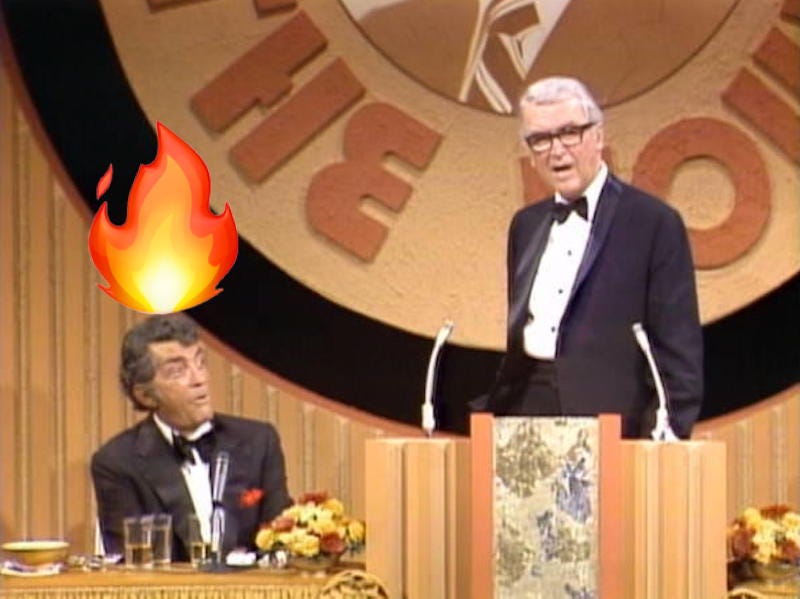Inoculate yourself with sharp wit
Or, RoastMe as a vaccine of mean

If you’ve ever worked for a corporation, you’ve likely dreamed about burning it to the ground. Now, the most forward-thinking workplaces will hand you matches and a jerrycan.
Well, metaphorically. It’s a business exercise called Destroy The Company. Instead of asking employees for ways to improve the business, executives ask them to imagine themselves as external competitors. How would they rip the place to shreds? This is as fun and cathartic as sledgehammering a jammed printer — and it’s actually useful. Nobody understands a company’s weaknesses like the people who work around them every day. And once you know the problems, you can fix them.
In the military, a “red team” tests your defences. In technology, white hat hackers reveal vulnerabilities. And if you just want to know the meanest thing someone could say about you, you post a selfie in Reddit’s RoastMe community.
RoastMe is an evolution of the formal celebrity roast, an American innovation that began in New York’s Friars Club and was popularized on television by Dean Martin and later Comedy Central. It splits the difference between cruelty and entertainment as the honored guest is mercilessly mocked by a string of friends and peers. Why? As foremost roast host Milton Berle said, “it’s just a crazy way of telling people you love them.”
Thanks to the internet, this dubious distinction is no longer reserved for celebrities. As linguist Marta Dynel explains in a fascinating paper in The Journal of Pragmatics (a very sensible read), RoastMe has given everyone the chance to be savaged.
Predictably, the media coverage of RoastMe has lumped it into broader discussions of cyberbullying (William Gibson should get a bitcoin every time that prefix is still used) or what Dynel calls “disruptive aggressive online phenomena” (e.g., life in 2019). But as Dynel discovers, it’s a bit more complicated than that.
According to the negotiated rules the community follows, RoastMe is not about spreading genuinely hostile or embarrassing information, and it is by no means intended to cause harm to roastees, who do not need to, or wish to, defend themselves. Moreover, roastees aim to elicit humorous jibes from other users, for instance regarding the potential flaws that they are deliberately sporting in their pictures or the (alleged) misfortunes they are reporting on in their self-descriptions, presumably in order to solicit more roasting comments and thus be successful roastees.
As a roastee, you win if you inspire the roasters to new heights of wit and creativity. Or as Dynel puts it, “each roastee picture is purposefully posted in the hope of inviting a plethora of innovative roasting comments” along the lines of:

Why? It could be the extreme extension of Wilde’s observation that “there is only one thing in the world worse than being talked about, and that is not being talked about”— you’d rather be called “the epitome of high school virginity” than ignored.
But I’d prefer to think of it as inoculation with sharp wit. Just as vaccinations work by teaching the body how to destroy a harmless invader so it can eventually tackle the real enemy, roastees can walk into a room of strangers knowing that no matter what jibes are uttered, they’ve heard worse.
And when you ascend to the boss level of wit, you can quite efficiently self-roast. W.H. Auden said it best when he described himself at his worst: “My face looks like a wedding cake left out in the rain.”
Quick quips; lightning
“The aim of a joke is not to degrade the human being but to remind him that he is already degraded.” — George Orwell
The dystopian author (1903-1950) had his own, less cheery gloss on Wilde’s observation that we’re all in the gutter but some of us are looking at the stars.
“It’s better to be looked over than overlooked.” — Mae West
As the original cinema sexpot, Mae West (1893-1980) doubled down on double entendres, climbing the showbiz ladder “wrong by wrong.”
“I was so ugly when I was born, the doctor slapped my mother.” — Henny Youngman
If you’re going to self-efface you might as well start from the face, as The King of the One-Liners (1906-1998) does here.
Thanks for reading the fifth issue of Get Wit Quick, the weekly newsletter of freshly turned phrases. It’s based on my book Elements of Wit: Mastering The Art of Being Interesting and could always stand to be in a few more inboxes. Note: I didn’t mention the MacArthur Park line about cakes and rain, but then I didn’t mention the DNCE song Cake By The Ocean either. #alreadydegraded.

